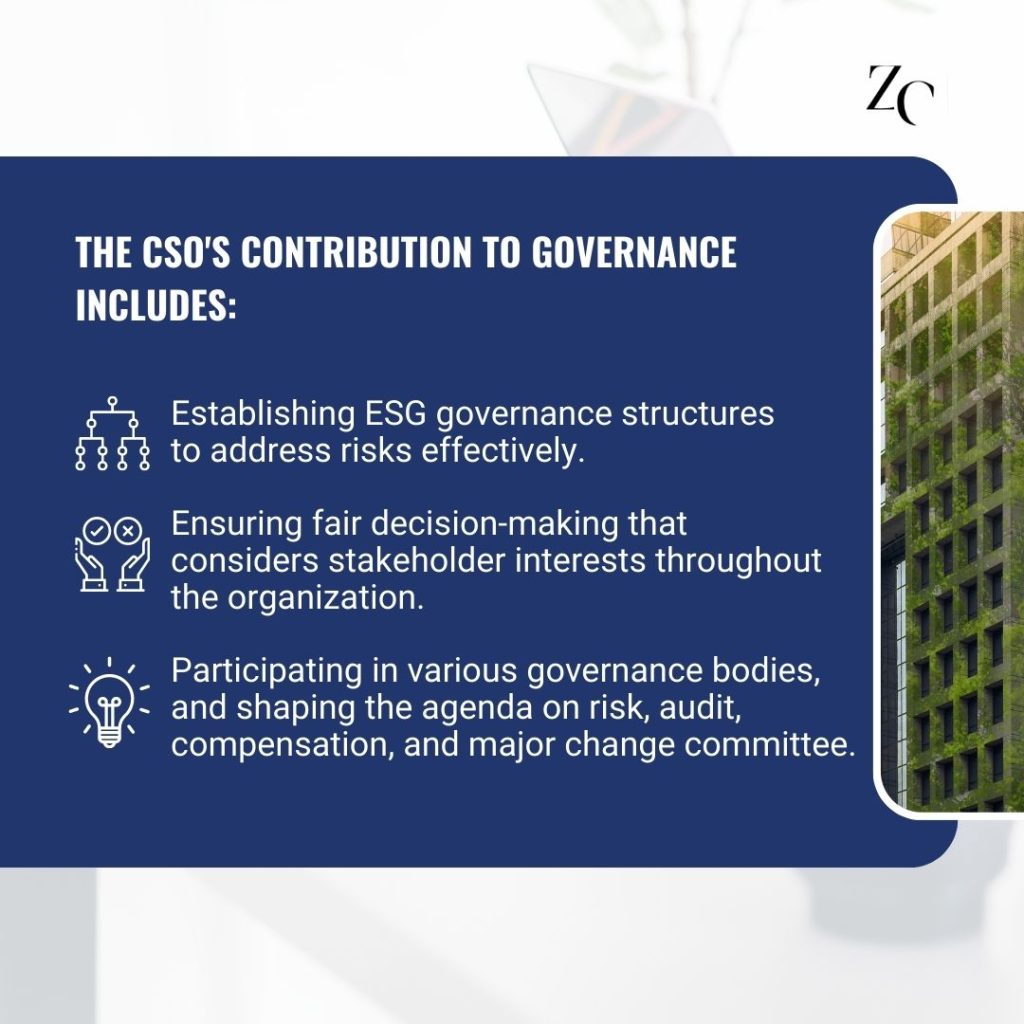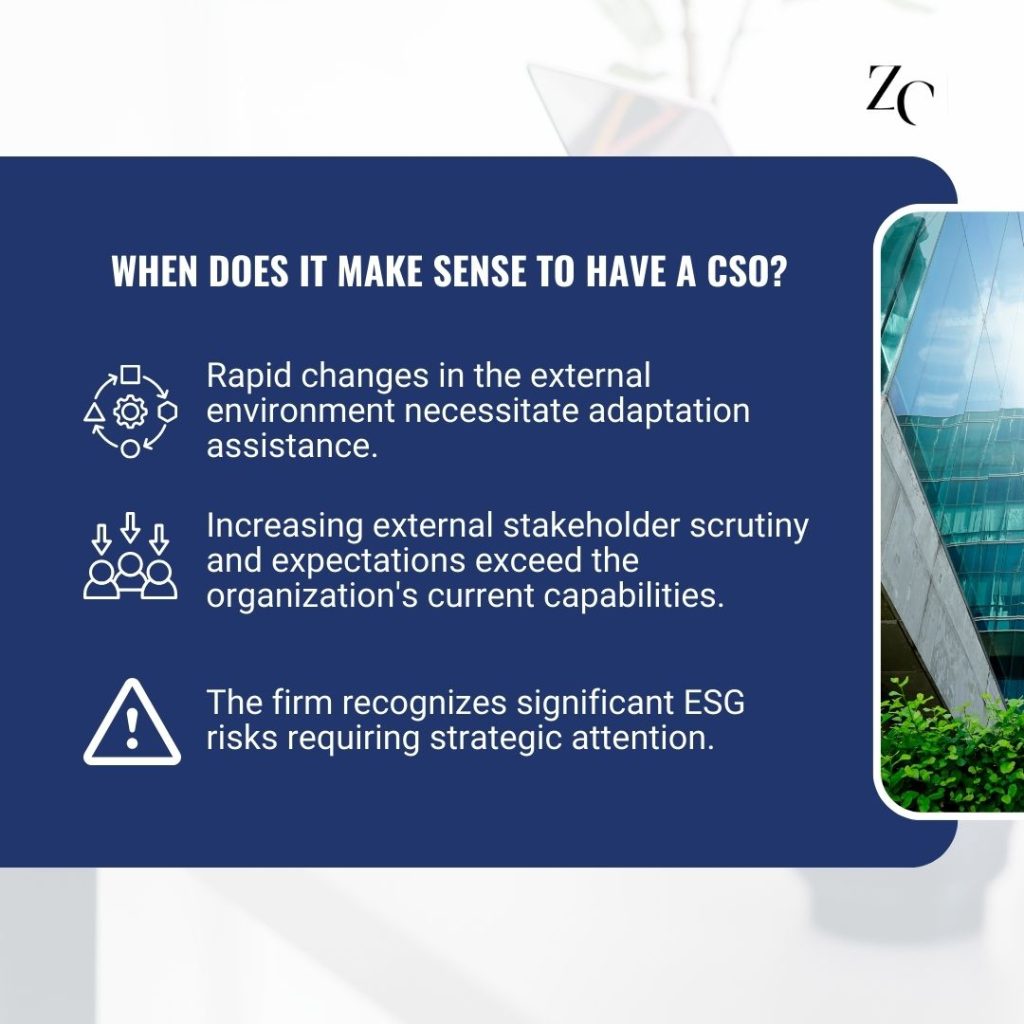As the world grapples with pressing environmental and social challenges, organizations are increasingly recognizing the need for a dedicated leader to guide their sustainability efforts. Enter the Chief Sustainability Officer (CSO), a key figure tasked with understanding, predicting, and navigating the ever-changing external sustainability landscape. In this article, we explore the role of a CSO, shedding light on their responsibilities, skill set, and their vital contribution to organizational sustainability.
The CSO is emerging as the “sense-maker in chief” within organizations. With the external sustainability environment evolving rapidly, the CSO plays a crucial role in helping organizations adapt and stay ahead. By understanding and predicting changes, they provide valuable insights to shape the organization’s strategic direction.
Three Conditions for Appointing a CSO:
- Rapid external environmental changes necessitate someone to help the organization adapt.
- Increased stakeholder scrutiny and expectations require an alignment strategy.
- The organization acknowledges substantial ESG risks that need to be addressed strategically.

Core Responsibilities of a CSO:
- Making sense of the external sustainability environment and bringing insights to the organization.
- Assisting the organization in reconfiguring its strategy to align with sustainability goals.
- Providing thought leadership by engaging, educating, and connecting teams.
Essential Skill Set of a CSO:
- Expertise in strategy formulation, influencing stakeholders, and raising awareness of ESG concerns.
- Proficiency in networking and collaborating with specialists across the organization.
- In-depth organizational knowledge and understanding of the business.
Management Styles and Communication:
Successful CSOs adapt their management styles to different situations and the maturity of the organization. They act as agitators, executors, facilitators, or stewards as required. Effective communication is paramount for CSOs, as they must influence a broad range of stakeholders both within and outside the organization.
Reporting Lines and Relationship with the CEO:
While approximately one-third of CSOs report directly to the CEO, reporting lines can vary. Some prioritize access to committed CEOs over formal reporting structures. Strong relationships with CEOs are essential for CSOs to effectively drive sustainability efforts, regardless of the reporting line.
Governance and Team Structure:
CSOs play a fundamental role in establishing ESG governance structures, ensuring that risks are considered and stakeholder interests are represented. They contribute to governance bodies, advise the board, and participate in committees related to risk, audit, compensation, and major change. Although CSO teams are often modest in size, their influence extends throughout the organization, necessitating agility and effective networking.

The Future of the CSO:
While there is speculation about the future of the CSO role, the prevailing belief is that its prominence will continue to grow. As CSOs establish and deliver integrated sustainability objectives, they are considered indispensable in addressing sustainability challenges. While some envision the role being absorbed into regular business functions or migrating to the CEO’s domain, the majority recognize the distinct contribution CSOs make and their importance in shaping a sustainable future.
The Chief Sustainability Officer (CSO) plays a critical role in driving sustainability efforts within organizations. Their relationship with the CEO, regardless of the reporting line, is essential for effectively implementing sustainability initiatives. CSOs also have a vital responsibility in establishing ESG governance structures and ensuring that risks and stakeholder interests are considered and represented. As organizations prioritize sustainability, the role of the CSO is expected to continue growing in prominence. CSOs are seen as indispensable in addressing sustainability challenges and shaping a sustainable future for organizations and society as a whole.










